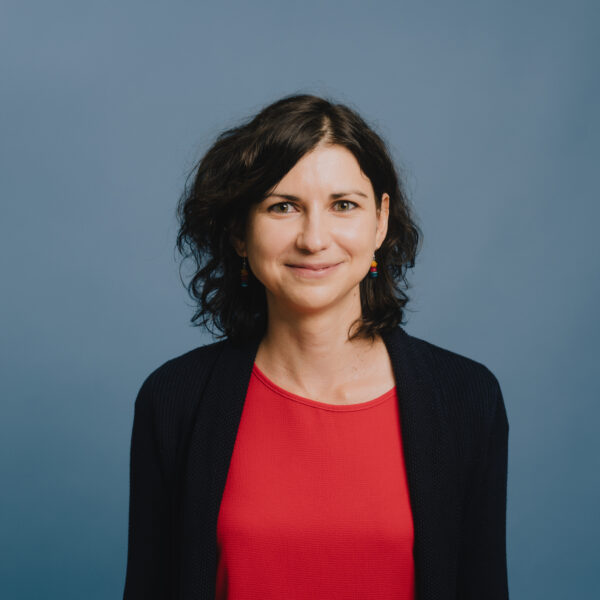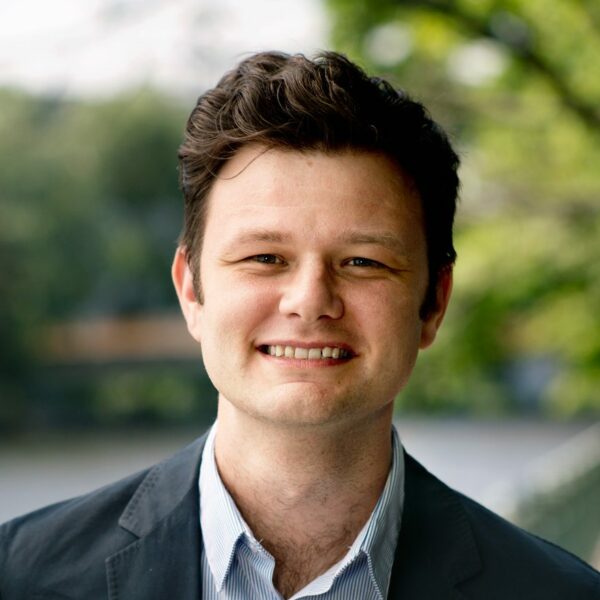Recent developments have rightly brought back old calls for structural change in the aid sector, and for taking anti-racist action individually and as organisations. CARE International’s Andres Gomez de la Torre Barrera makes a compelling personal case that we can either remain tone deaf (again) to these calls or take the opportunity to listen, reflect and act with a renewed sense of urgency.
The pandemic is exposing deep inequalities in our world, and our sector is not immune
It’s difficult to sum up how I’ve felt in the last few weeks. I’ve gone from frustration to excitement, sadness to hope and, at points, rage. It’s been heart-breaking to witness people in my home country, Peru, dying due to COVID-19. But even more than the virus itself, the real killers are years of oppression, inequality, corruption and gender-based violence, underpinned by structural racism, indifference and patriarchy. All around the world, the pandemic is exposing the deep inequalities in our world in the most brutal way.
Protests and reactions around the world are also refocusing attention to how racism is structural and embedded into all aspects of our society. It’s inevitable the aid sector is also deeply marked by it, despite the ideals it embraces of humanity, equality and empathy. Nearly everyone has a story, as highlighted in this recent Bond blog, “from overt experiences of racial discrimination, to everyday micro-aggressions and unsafe workplace cultures”. Passionate and thought-provoking statements from within seem to be finally shaking our sector, particularly (but not exclusively) from Black, Indigenous and People of Colour (BIPOC), despite these same voices (and others before them) having already tried for so hard and for so long to prompt change.
A new opportunity to challenge ourselves and make our sector more equal and inclusive
We have an opportunity, with a renewed sense of urgency, to go as deep as we can and face the real underlying issue: we need to decolonise the aid sector. The level of change needed is so significant, that we can’t waste time in accelerating actions to tackle racism and colonialism in aid. It’s a call for all of us, because no one is immune – individually or as an organisation, by action or inaction – to structural racism. We need to see this as an opportunity to reflect on how racism – subtle or open – shows up inside our organisations, shaping the way we conceptualize our work, our behaviors and ways of working.
Anti-racism means learning and listening as individuals
White supremacy culture, with roots in colonialism, designed and constructed the aid system we work in and – by action or omission – we have supported this dominant power and narrative. As Stephanie Kimou, Founder of PopWorks Africa, said during last week’s #AntiRacistInAid webinar, “You don’t need to be racist or a white supremacist to support white supremacy culture.” If we feel called out, fragile, guilty or uncomfortable with this discussion, there are plenty of resources and voices that we can use to educate ourselves. They can help us start reflecting on our own privileges and how we have engaged with racism and the systems that embed them in our own lives.
Listening to inspirational and fearless leaders will challenge the way we see the world and the aid sector, while helping us to reflect on our own assumptions and privileges. I’ve been particularly drawn to Stephanie Kimou and Degan Ali, Executive Director of ADESO, in the two superb and inspirational webinars that took place last week, #AntiRacistInAid and #RethinkingHumanitarianism.
Essential reading is this fantastic piece by Vu Le on Have nonprofit and philanthropy become the “white moderate” that Dr. King warned us about? and Jennifer Lentfer’s ‘Professional do-gooders, here’s 14 ways to be in action against anti-Black racism’. And if you enjoy audio, listen to Challenging the “‘White Gaze’ of Development” during COVID-19 with Liberian academic, activist and author Robtel Neajai Pailey.
Anti-racism means taking active stands, engaging in difficult conversations as leaders
If we’re in a position of leadership within an ICSO, it is key to listen, learn fast, and reflect on the role and responsibility we hold, and bring attention to the need for change. Tweeting supportive messages or publishing solidarity statements mean very little if not accompanied by reflection and concrete commitments, including taking an active anti-racist stand in our own organisations. As Degan Ali says, we need a “radical reckoning” else #BlackLivesMatter might become a trend in our sector, if structural issues are not addressed.
People in leadership positions in our sector – predominantly white men – should not run away from difficult conversations because of their political nature. The international aid system is political, as everything in it is about power relations and hierarchies. As compellingly argued by Vu Le, if sector leaders do not publicly call out white supremacy or nationalism when protesters are risking their lives in a pandemic, or ‘think it’s too political or uncomfortable to say that Black lives matter and act/fund accordingly, then…you are part of the problem.”
Leaders should promote spaces for staff to discuss racism, inclusion, gender inequality and privilege, without forcing our presence in what might need to be safe spaces. We need to support these as important and necessary ongoing investments in our staff well-being and organisational development. Our own Leadership Teams must learn and reflect about these issues, listen to the lived experience of others, and be prepared for uncomfortable conversations, at least at the beginning. If these are not making you feel uncomfortable, then you’re probably not having the right conversation.
Anti-racism means reflecting the diversity of our communities in our own people
Our leadership and teams should better reflect the diversity of our own communities. Significant changes are needed in the way we approach our own people and what we value the most – recruitment and promotion, equal pay for equal jobs, expat salaries and benefits, investment in training and support – and the promotion of an organisational culture that truly embraces gender equality and inclusion. Women, and particularly Black, Indigenous and Women of Colour must be fully represented in the most senior leadership, executive and board roles in our organisations.
Finally, and irrespective of the position we hold in our organisations, we should all reflect on our privilege and, from this point, engage in discussions with a different perspective. We should be able to recognise if (or how) we are beneficiaries of a system that discriminates BIPOC, and engage with more empathy, acting and seeking fairer practices and, why not, taking a step aside.
Anti-racism means being serious about localisation in our operating models and behaviours
All the #AntiRacistInAid panellists agreed, “we can’t be truly anti-racist in this sector if we are not serious about true localisation”, although tokenistic localisation itself is coming under question as another construct of the same system we’re trying to change. We must start by asking what is needed and who is best placed to meet that need, rather than articulating what we – as ICSOs- can offer or bring (“our expertise”). We need to properly engage with demands from national actors for a paradigm shift whereby we support and not compete with them. And we need to stop trying to justify why this is not possible yet, and instead make it happen. “As national as possible and as international as needed” is regaining momentum as a clear vision, and “leading from behind” or “speaking on behalf of the voiceless” finally starting to lose ground.
This also means taking actions to ensure we are: investing more in locally-led actions, engaging in more equitable partnerships – which recognise power imbalances but genuinely embrace the added value of each partner brings, being fully transparent on how much of the money we raise actually reaches local communities, questioning who makes the decisions on the use of the funding, and having effective exit strategies which avoid perpetuating our presence and/or harmful dependency. Everything we do must aim at complementing existing local capacities – which were there way before we arrived and will be way after we depart.
Anti-racism means rethinking our knowledge, communications and language
The aid sector has basically been built on the transfer of knowledge and resources from “givers” to “recipients”, reinforced by all actors in the system. From donors reinforcing paternalistic needs for “capacity building’ to those at the ‘receiving end’ embracing the model – for multiple reasons – white supremacy practices are not exclusively by White people or those from “the global north”. Most examples of driving progress, innovation or “out of the box thinking” seem to be “exported” by the same suspects. Communications focus should be on rethinking who is telling the stories and getting the credit for the work done, and constantly reflecting if we are behaving like “white saviours”. Simply asking for permission for photos “we take” and use in “our channels” or trying to portray communities in a dignified way is not good enough.
Last but definitively not least, language is both power and political too. Let’s start just by getting rid of all these terms I still hear: “beneficiaries”, “capacity building”, “first” and “third world”, “going on a mission” or “travelling to the field”. My colleague Tessy Cherono Maritim really gets us thinking on this: “Going to ‘the field’ is the same as saying ‘third world’ and fuels this racist and white saviour fantasy of ‘exploring in the wild’ or going somewhere dangerous to rescue people with no autonomy or initiative. We never refer to European or North American offices as ‘the field’. The term perpetuates this idea of a powerful centre and places outside this as the ‘other’. If we believe in the notion of a networked, multi-polar world, where ideas, capacities, money, power, exist in contexts outside the West/North, we should stop reference to this term. Changing language is a simple way to communicate our commitment to anti-racism.” The responsibility for changing white supremacy language is on those who constructed it.
Anti-racism means us joining together to shake the system we’re part of.
While this is obvious, sometimes it seems like we don’t want to see it: ICSOs are just one set of actors within a much broader and complex aid architecture. But we have both a right and responsibility to shake the system from within, “unlearning” from being in it for so long, and getting our act to work together in solidarity to bring about this much-needed change.
The views and opinions expressed are those of the author and do not necessarily reflect the official policy or position of CARE International.
Resources
- The organisers of #AntiRacistInAid made available some free resources they are happy for us to share. Take a look.
- Taking this implicit bias test may be helpful in unpacking your own unconscious biases.
- This reading list on anti-racism specifically for aid workers, put together by the Fifty Shades of Aid community.
- A compilation of resources on anti-racism in general.
- A good collection of articles, reflections and suggestions by Nadine El-Nabli and Anna Myer. It includes useful resources and suggested practical commitments on several areas. (link).










